Best Zagreb Mayor By Historians: Historians Shouldn't Rate, But Većeslav Holjevac Takes Lead
May 11, 2021 - Ahead of the local elections, following the death of Milan Bandić and troubling issues Zagreb is facing at the moment, TCN reporter Ivor Kruljac wondered who is the best Zagreb mayor by historians.
With the local elections happening in Croatia this Sunday, just as every year, 2021 is no exception, with all eyes directed on Zagreb. This is no surprise, given that, for better or worse, Zagreb is the capital city, the center of politics, culture, science, education, and the spot where Croatians from other smaller towns, villages, etc. come in search of a job and new opportunities. You may not necessarily need to leave the country to leave your dreams, and despite other regions of Croatia slowly but surely developing, Zagreb is still considered by many as the necessary place to go to achieve something.
And this year, the eyes are even watching in even bigger suspense; Milan Bandić, who was the first man of the city for 20 years, passed away in February. The ever-controversial political figure (now replaced by his deputy Jelena Pavičić Vukićević, who also runs in the elections) suspected of corruption, being arrested during his mandate and on several trials, left lots of unresolved issues which the new mayor will have to address in the city's administration. Additionally, the current corona crisis caused some new challenges, and last year's earthquakes and city reconstructions are still a hot political topic among citizens.
Zagreb: History of overcoming the crisis
Challenging circumstances in 2021, no doubt, but certainly nothing Zagreb isn't used to. While settlements on the city's territory date earlier, the first mentions of Zagreb are linked with establishing of Capitol Diocese in 1094. Since then, diseases, earthquakes, floods various wars (WW1 and WW11 included, as well as the 90s war Croatians commonly refer to as the Homeland War), disrupt the peaceful life of Zagreb citizens. The city still stands. But of course, these different troubling contexts were handled not just by citizen's persistence but also by the city's authorities and leaders.
Throughout the turbulent history, Zagreb had, concluding with current deputy Jelena Pavičić Vukičević, a total of 53 mayors. The first one was as, Povijest.hr writes, Janko Kamauf, whose term lasted six years, from May 15, 1851, to 1857. He was a former city judge of Gradec, a title whose authorities basically made him the mayor of Gradec. Following the unification of rival Gradec and Kaptol into one city in 1850, he was elected to be the first leader of a city whose population at the time counted 16,036 people.
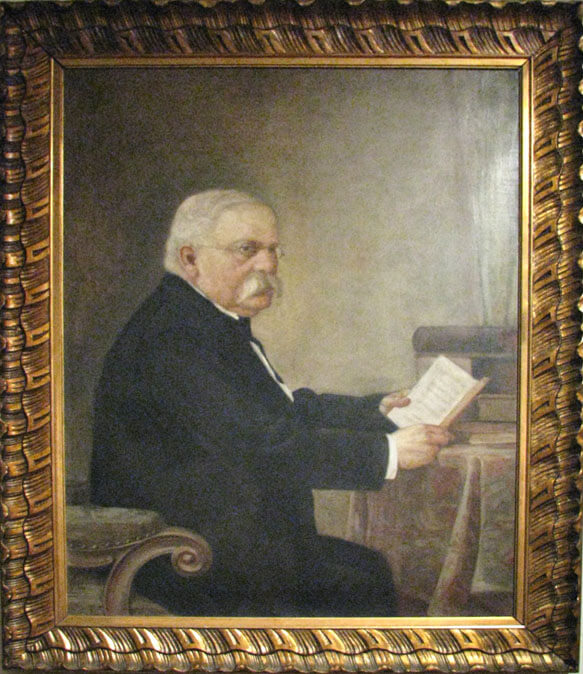
Janko Kamauf painted by Bela Čikoš Sesija, showcased in Zagreb City Museum © Unkown author, Wikipedia
He was the first, but was he the best?
I asked several historians if could they rate and pronounce in their opinion, with regards to the specific contexts, who was the best Zagreb mayor, from Kamauf to Vukičević Pavičić.
Two votes for Većeslav Holjevac!
„I'm not into grading, that's not a historian's task. Our task is to explain and put on the table facts and context of events“, said Ivo Goldstein when I asked him about the best mayor of Zagreb.
Ivo Goldstein may be best known to the Croatian public as a harsh critic of the far-right and the fascist regime of the Independent State of Croatia. As a Historian, he took an interest in various topics related to Croatian history.
At the start of his career, his focus was on Byzantine Empire and Croatian Middle Age History as well as the history of Jews in Croatia. In mid 90's he moved to the various aspects of Croatian history in the 20th century.
He was a professor of various history courses „General History of the Middle Age“ (1984-2003), history of methodology (1991-1996), and many more and today a full-time professor at the Department of History on The Faculty of Humanities and Social Sciences, the University of Zagreb (where he mastered and later completed his Ph.D. thesis at the Faculty of Humanities and Social Sciences, University of Belgrade).
Goldstein's scientific papers received positive acclaim in various countries worldwide, he hosted various projects scientific projects and associations and is very active in Croatian public space when it comes to historical issues that shape the ideas and decisions of current policies in Croatia.
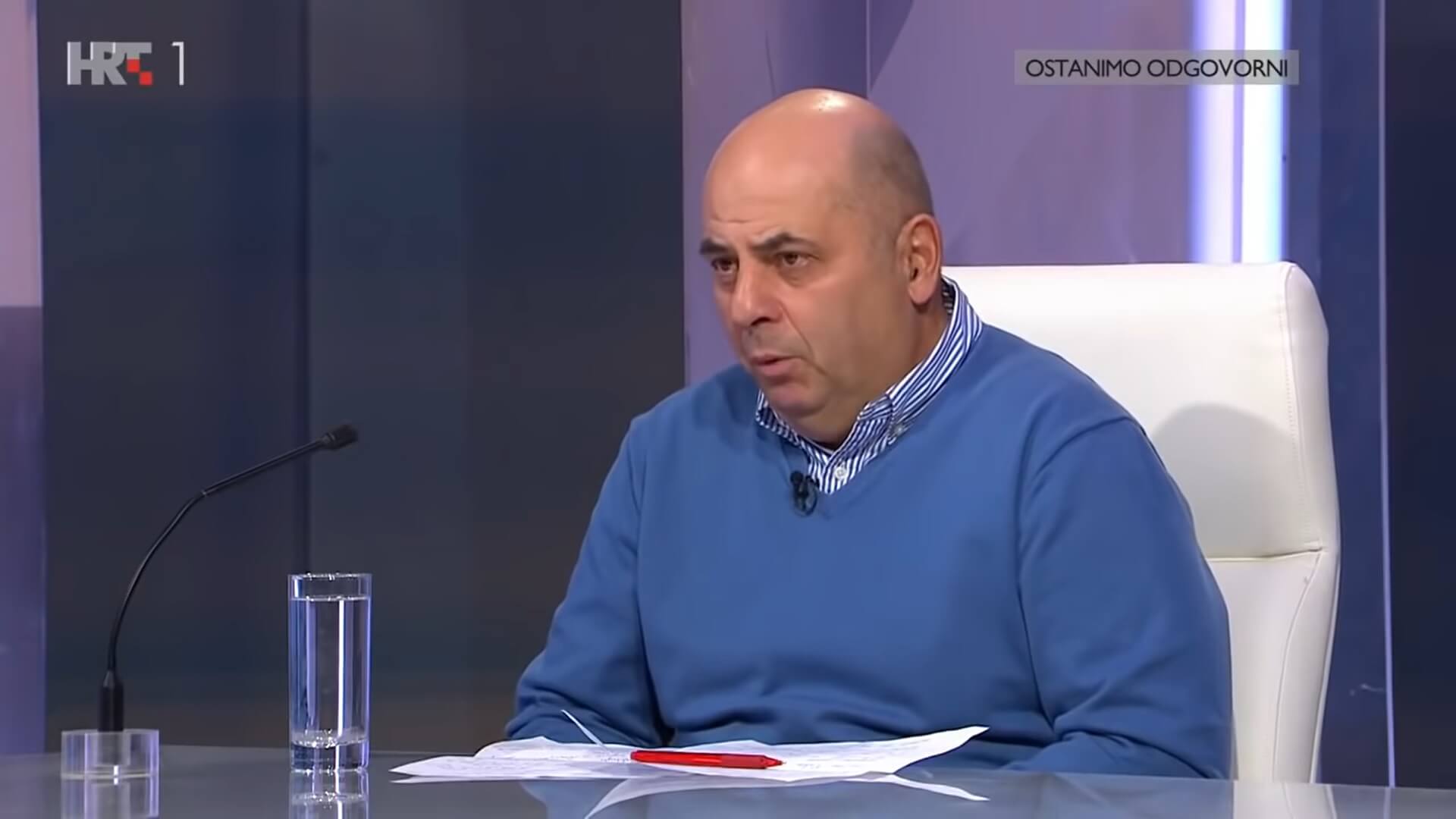 Ivo Goldstein / screenshot HRT Nedjeljom u 2
Ivo Goldstein / screenshot HRT Nedjeljom u 2
Upon explaining the role of historians, professor Goldstein nevertheless didn't mind giving his personal opinion.
„For me, there is no doubt that the best mayor of Zagreb is Većeslav Holjevac“, said Goldstein.
Većeslav Holjevac was the Mayor of Zagreb from 1952-1963 and his eleven-year mandate saw Zagreb develop and spread as the city.
„At that time, Zagreb was the capital city of Socialist Republic of Croatia, which was part of Yugoslavia. Holjevac saw a boost by liberal politics, it was the time of growth and optimism and Holjevac knew how to use it. He was a man of action and used Yugoslavia's opening to the world to Zagreb's benefit“, explained Goldstein.
He added that Holjevac didn't want to be perceived as some sort of transmission of higher state authorities. He didn't hide behind forums and was an independent, free-minded politician, which made him known and beloved among citizens.
„But it made him unloved among the higher power of authority which ended his mandate, although we historically don't know the real reason why Holjevac stopped being mayor“, Goldstein pointed out the mystery which is yet to be cleared up by historians.
The key term of Holjevac's mandate is the General Urban Plan which saw the development of the Most Slobode (Bridge of Freedom), expansion of Zagreb city to south across Sava river, and what today is Novi Zagreb (New Zagreb), as well as building up Zagreb Airport.
„Holjevac knew how to surround himself with good associates who were both dreamers and experts. Holjevac also engaged himself in the projects and his associates felt safe and that he got their back“, explained Goldstein.
The best example of that boldness and visionary approach can be seen in the Zagreb fair which was at that time located at the place of today's Student Centre in Savska.
„The fair needed expansion but was surrounded by railroad tracks everywhere, and the question was how to expand it. There were several options, but Holjevac decided to take it across the Sava river, and it happened. It was quickly constructed, and the first fair on newly build location was the Autumn fair in 1956. and it was the biggest event of its kind in the world back then“, said Goldstein, gladly adding he even had a chance to meet Holjevac as a 12-year-old since the mayor knew his father, an established Croatian intellectual, and politician, Slavko Goldstein.
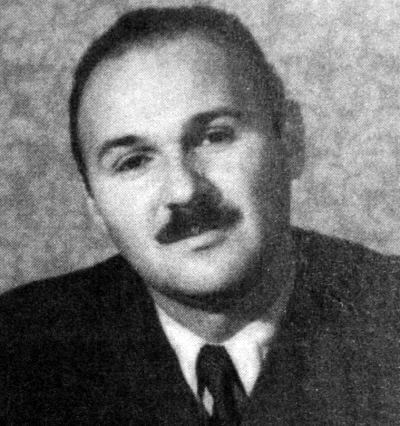
Većeslav Holjevac © Udruga Kameleon / Wikipedia
Hrvoje Klasić was professionally most occupied by Većeslav Holjevac, so he also shares Goldstein's opinion about Većeslav Holjevac.
„In a sentence: Zagreb has never been more developed as it was after Holjevac“, summarized Klasić.
Hrvoje Klasić graduated in 1997 from the Department of History, Faculty of Humanities and Social Sciences at the University of Zagreb. At the same University, he defended his dissertation entitled “1968 in Yugoslavia. Socio-economic changes in an international context”. Since 2003 he has been employed as a professor at the same Faculty and University.
Today, he holds a number of courses related to the world and national history of the 20th century.
Hrvoje Klasić also won the Annual Award of the Association of University Teachers and other Scholars in Zagreb in 2006. That same year he won the Annual Award of Sisak City for the Book „Croatian Spring in Sisak”. He is the author of 3 more books and the author of two documentary series „Croatian Spring“, and “The Independent State of Croatia” produced by Croatian Television. In 2017 The Serb National Council in Croatia gave him an award for the improvement of Croatian-Serbian relations. In 2019 he won the Award for the promotion of peacebuilding, nonviolence, and human rights.
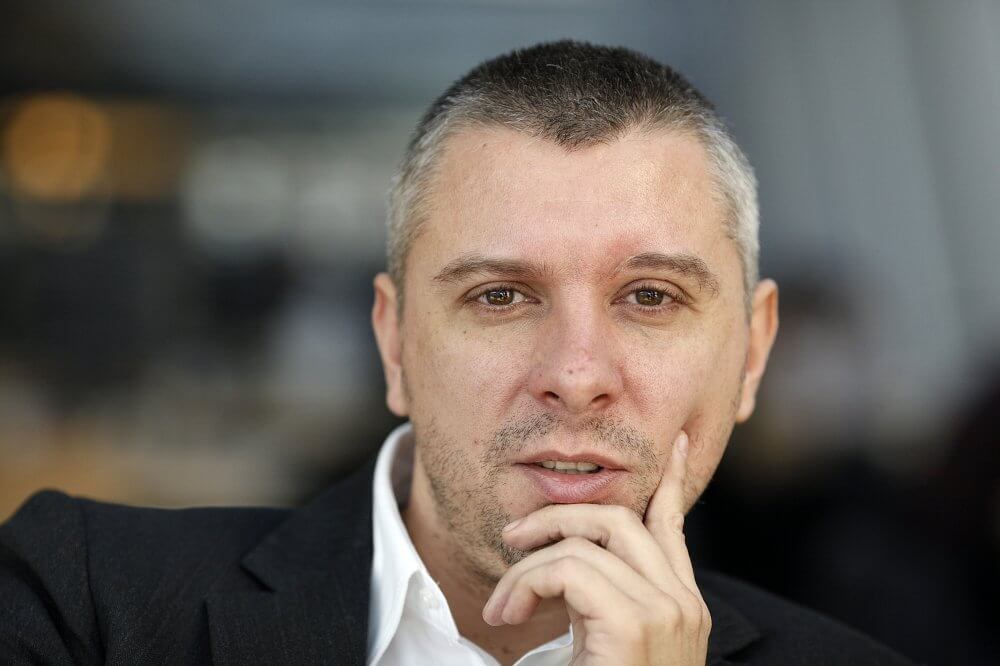
Hrvoje klasić © Hrvoje Klasić
„Most people don't know that Holjevac technically wasn't a mayor, rather he was a president of the City's National Council“, explained Klasić the precision of the functions in the previous Yugoslavian state. He added that while his term lasted from 1952-1963, that is only partially true because he was first appointed to lead Zagreb in 1945.
„In 1945, he was named the city commander who was a military function but he was also in charge of food, traffic, working with several refugees after World War 2 until he gave the control over to civilian bodies“, describes Klasić.
Holjevac then moved on to be the minister of work and traffic in the Social Federal Republic of Croatia. However, at that time, Yugoslavia was going under a change in its political institutions by the self-governing policy which went under parole „factories to workers, cities to citizens“, and as a result, Holjevac 's ministry was shut down. His return to the top position in Zagreb happened without him even knowing.
„As part of self-governing, the Communist Party in Zagreb searched for someone who isn't just going to execute orders from above but instead is an individual that has quality, creativity and will make its own decisions. Holjevac was elected during a meeting he wasn't even present on, and some members of the party were worried is it smart to give Zagreb to a person who is from Karlovac“, said Klasić.
As Goldstein already mentioned, his term lasted over a decade, and Klasić adds that was a very unusual duration at the time.
While Goldstein already mentioned the traffic connections of Zagreb, Klasić said it is very hard to count everything Holjevac built, but he put focus on the industry. Industrial plants of organic-chemical industry, Zagreb heating plant, industrial plants of Pliva pharmaceuticals, Chromos paint company, Kemika, Zvijezda company, Katran, Badel company for alcohol spirits, an ice rink on Šalata, winter pool and gymnastics gyms on Mladost, Yugoton record company, Jadran Film, TV tower on Sljeme, Zagreb drama theatre, an emergency room in Draškovićeva, various elementary and high-schools, and began construction of Vatroslav Lisinski concert hall and more.
„Before Holjevac, there were 40,000 workers in Zagreb. After Holjevac, there was 110,000“, said Klasnić to illustrate the results which made the city the strongest industrial center in Yugoslavia. Apart from industry, Holjevac put a lot of focus on culture and education, as evident by building Workers University Moša Pijade for adult education (today's Public Open University Zagreb) and culture.
Holjevac's „Jump over Sava“ was done on the one hand to prevent interventions in old Zagreb, and on the other, the organizational construction of Novi (New) Zagreb saw the workers live close to the newly built factories.
As Goldstein already referred to Zagreb Fair as perhaps the most significant project of Holjevac's mandate, Klasić added that the unique geopolitical position of Yugoslavia as the bridge between east and west, thanks to the non-aligned movement, made the fair a key place worldwide.
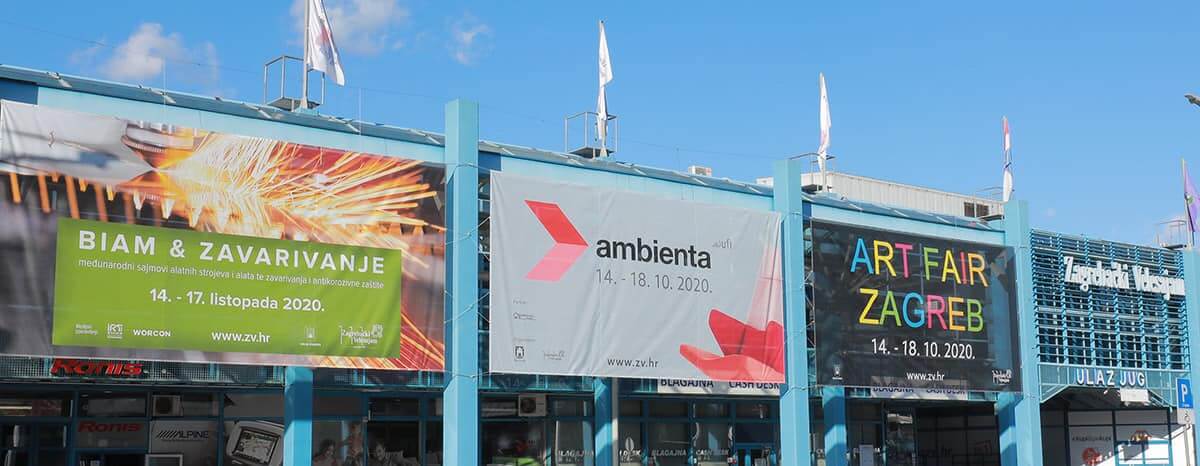
Southern entrance of Zagreb Fair in 2020 © Zagrebački Velesajam
„The fair was not just important for holding exhibitions, but for making deals and signing contracts as well. Given Belgrade was the capital of Yugoslavia, there were pressures to have such a fair there, and there were even boycotts from Belgrade to Zagreba Fair events. However, Holejvac being both persistent and enjoying support by the Yugoslavian president Marshall Josip Broz Tito, managed to keep this significant place in Zagreb“, explained Klasić.
When asked about resentment of other politicians, and the unclear mystery of concluding his mandate, Klasić said he had a chance to look at archives about Holjevac while working on an exhibition about him, and he feels that the situation is much simpler.
„Holjevac basically left due to the same politics that got him to be the mayor in the first place. The Self-Governing model started descending to the lower levels of the system and started searching for creative people. In 1963, a new constitution was brought that further developed the political system to give City Assembly more power accenting the community governing Zagreb. Holjevac's president of City's National Council title has shut down, and the president of Assembly became the first man of Zagreb.
Rotation of politicians as well as limited mandate time was arranged too“, explained Klasić.
He added, however, that it is problematic that an experienced, capable, brave, and brilliant man like Holjevac wasn't put to better use after he stopped being mayor and played bigger roles in Yugoslavian political life.
There isn't the best, only good and bad mayors
Unfortunately, other historians, I contacted (and of course, I couldn't contact every single one, who knows who else might be interested to participate), didn't respond to my inquiry. While Ivo Goldstein explained rating mayors isn't historian's job, Stevo Đurašković, professor at the Faculty of Political Sciences in Zagreb, further elaborated the problem of my question.
„I'm not a fan of such an approach to the topic like it's a miss pageant. In Zagreb's history (as in good portions of cities around the world). There were several great mayors, again, each in its own historical context“, explained Đurašković.
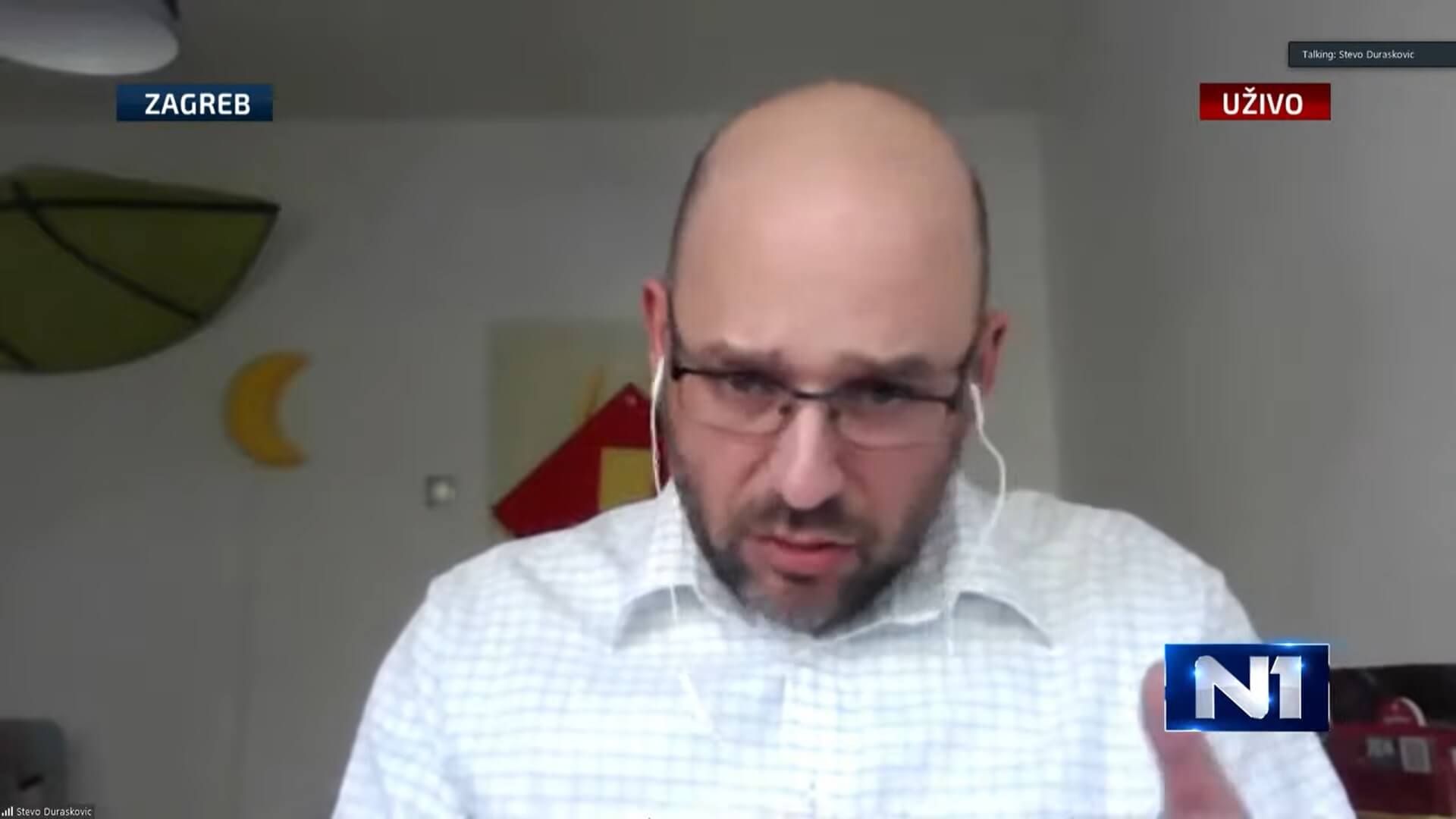
Stevo Đurašković, screenshot / N1
Stevo Đurašković is an Assistant professor at the Faculty of Political Sciences, University of Zagreb, where he teaches courses in politics of history and Croatian history. He received his Ph.D. in Political Science from the Faculty of Social Sciences at the University of Ljubljana and his MA in Central European History from the History Department at the Central European University, Budapest. His research interests include the politics of history, intellectual history, and national identity-building processes in East-Central and Southeastern Europe. Recently he published the book The Politics of History in Croatia and Slovakia in the 1990s (2016). Participated in several international projects, including “Identity Reader: Regional Identity Discourses in Central and Southeast Europe, 1775-1945” (CAS, Sofia). He is a member of the editorial board of the Cultures of History Forum (Imre Kertész Kolleg, University of Jena). In 2009/2010. He was a Ph.D. research fellow at the Faculty of Economic and Social Sciences, Comenius University, Bratislava (CEEPUS grant, Visegrad Fund grant).
In other words, an expert in his respective field with a valid and knowledgeable opinion.
„Milan Amruš and Većeslav Holjevac were great mayors. How to determine if Amruš's development of pre-war Zagreb is greater than Holjevac's post-war development of Zagreb?“ concluded Đurašković his decline to comment who would be the best mayor of Zagreb.
Speaking of Amruš, he was Zagreb mayor in two separate mandates, the first one lasting from 1890 to 1892 and the second from 1904 to 1910. Lice Grada reports that some of the accomplishments in Maruš terms include electrification of the city, and building up Munjara Power Plant (in 1906 and 1907). Under Amruš's mandate, the website continues, horse trams were replaced by electric trams in 1909 and new tram lines and the expansion of the previous one from Ilica to Topnička Barracks were constructed. In addition, 1890 saw lower and upper Zagreb connected by a funicular.
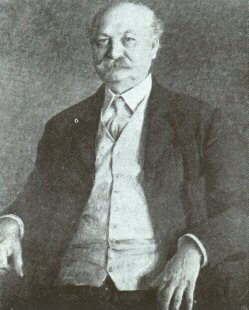
Milan Amruš © Unknown author Wikipedia
Đurašković also added in his decline that Pero Pirker is often „a forgotten mayor“, and Klasić mentioned him as the Holjevac's successor. Mentions of Pirker are also noted on Nacionalne Manjine (National Minorities) site that declared Pirker as a noted Zagreb mayor.
"There is no doubt that Pirker is one of the most capable, most successful, and in its time an extremely popular mayor. But it is stunning that for political reason, considering he was one of the established champions of Croatian Spring in 1972, his work was completely silenced not only until the 1990s but also later“, wrote Goran Beus Richembergh for Nacionalne Manjine.
It's worth noting that the Croatian Spring was a reawakening of national identity which paved the way for the country's independence and the dissolution of Yugoslavia, on which TCN reported on its 50th anniversary earlier this year.
In Pirker's time, the Great flood that sank Zagreb in 1964 was truly the historical challenge of his mandate.
„It was a natural disaster of great extent, and the entire previous state (Yugoslavia) was involved in sanitation and help was arriving from all over the world. But, the biggest responsibility for the coordination of help, sanitation of the damage, taking care of the casualties, and building new homes was carried out by Zagreb's authorities, lead by Pirker who showed to be a skillful manager and successful in various projects“, described Beus Richembergh.
Amruš had the challenge to electrify Zagreb to keep up with other European capitals, Holjevac had the challenge of restoring and developing the city post WW2, and Pirker had the flood.
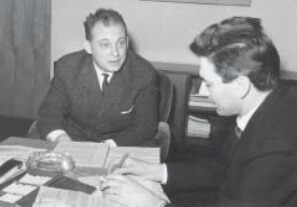
Pero Pirker (on the left) © Croatian Journalist Association / Wikipedia
Both corona and earthquake, as well as the mess suspected to find post-Bandić, are all just another challenge in the history of a town that is used to be challenged and always dancing victory laps.
While Đurašković explained comparisons of what was the most difficult challenge and who was the best mayor make no sense, Goldstein and Klasnić presented their pick. But, as respectable historians they are, they emphasized that it is their opinion and not an empirical fact, even though their arguments are both knowledgable and well explained.
In the end, politics should be about making people's lives better and not about chasing crowns or historical acknowledgments. And as Zagreb really needs a quality leader, the only logical conclusion is: may the best candidate wins, and may purgers recognize the best man or women for Zagreb to once again wave the middle finger to the aftermaths of the recent crisis as it overcomes them.
Learn more about Zagreb on our TC page.
For more about history in Croatia, follow TCN's dedicated page.
10% of Mayoral Candidates Running Unopposed in May 16 Local Elections
ZAGREB, 4 May, 2021 - About 10% of the total of 555 towns and municipalities in Croatia already know who their mayors will be over the next four years because they are sole candidates running in the 16 May local elections.
The Croatian Democratic Union (HDZ) can already claim victory in four towns and 44 municipalities, as shown by the data on mayoral nominations available on the Electoral Commission's website.
This was also noted by the HDZ leader, Prime Minister Andrej Plenković, on Monday. "At this point the HDZ has already won in 48 local government units, which speaks of the strength of the HDZ candidates and the strength of the party," he said.
The ruling party has thus already secured mayoral posts in four towns - Pakrac, Skradin, Nin and Hrvatska Kostajnica. The majority of municipalities where the HDZ candidates are running unopposed are located in eastern Osijek-Baranja County.
In addition to the HDZ, some other parties have also already notched victories.
The Istrian Democratic Party (IDS) has sole candidates in two municipalities, the Social Democratic Party (SDP) and the Croatian People's Party (HNS) each have one such candidate and candidates of the Independent Democratic Serb Party (SDSS) will face no opposition in three municipalities.
In the southern municipality of Muć, the present long-serving mayor, who is running as an independent, is also the sole candidate.
For more about politics in Croatia, follow TCN's dedicated page.
Rating of Croatian Mayors, City Administrations and Companies Begins
Just how well do Croatian city administrations work, how well do Croatian mayors actually do their jobs, and how are Croatian companies performing? All will be revealed...
As Vedran Marjanovic/Novac writes on the 9th of April, 2019, just like in 2018, this year, Croatia is beginning to thoroughly monitor and evaluate the work of its many mayor and the administrations of 126 Croatian cities in order to choose the best among them, and all local authorities have been pushing for better management in favour of their respective residents. This is the main mission of the second time of voting for the best Croatian cities under the organisation of the Gradonačelnik.hr portal and the Ipsos agency.
''Last year, when the idea of monitoring and evaluating the work of city administrations was initially launched, we weren't able to see how much the project would demand in terms of organisation, media, logistics and research, and after last year's award ceremony for the the best cities, we're proud to say that we created a sustainable methodology for the monitoring and ranking of Croatian cities. After all, we're convinced that we have developed the first credible metric to monitor the quality of life in Croatian cities. Since the cities themselves, as well as our readers, have recognised the seriousness of our Best City project this year, we decided to take it to a new level - we turned it into a year-round project. Additionally, while last year we ranked the work of city administrations first, this year we will also have competitions for Croatian companies in terms of Smart City and Eco City solutions.
Our goal is to create a platform that will bring the public closer to local politics, primarily by comparing the performance of Croatian local self-government units,'' stated Vanja Sertić, the founder of Gradonačelnik.hr's project, who also expressed her expectation that this year's selection of the best Croatian cities will contribute to creating a positive competition among local leaders which will ultimately also make the lives of their fellow citizens better.
Months of research and evaluation of Croatian cities will culminate in the final announcement of the winners on October the 4th this year in six categories and in three competitions - the large (over 35,000 inhabitants), the medium (between 10,000 and 35,000) and the small Croatian towns with a maximum of 10,000 inhabitants. The main categories are quality of life, economy and education with demography, youth and social policy. Special categories are Eco city, Smart City and EU Fund Champion.
"We will analyse all of the publicly available statistics, carry out and conduct surveys among the cities, as well as among their residents, and thus create a list of cities that have something to boast about,'' said Vanja Sertić.
This is a comprehensive evaluation of the indicators of Croatian cities, for example in the category of quality of life, research includes data on the city's safety and security, budget allocations for culture and sports, real estate prices, the number of parking spaces and the quality of the city's transport. In addition, according to Ante Šalinovic of Ipsos, this time statements of the citizens themselves are being taken into account, as is their perception of the quality of life in the areas where they live and work.
''Last year, we participated in the creation of methodology for the selection of the city with the best quality of life in Croatia, linking different pieces of statistical data with the perception of satisfaction with life in those cities. We determined that each parameter influences the quality of life and we ultimately ranked the cities. In 2019, we'll continue to explore the quality of life in Croatian cities, with an additional methodology upgrade to get the most accurate ranking of the cities that provide their citizens with the best quality of life and living standards,'' Šalinović told Novac.
By introducing a special Smart City Award for technologically advanced city management solutions or in providing citizens' services, this election of the best Croatian cities seeks to measure the consistency of local self-government units with contemporary trends.
Make sure to follow our dedicated politics and lifestyle pages for much more.
Click here for the original article by Vedran Marjanovic for Novac/Jutarnji


